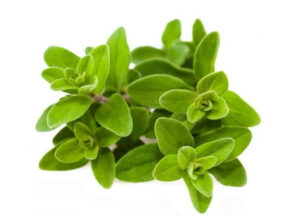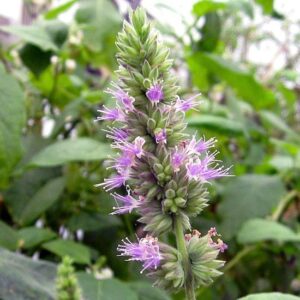The skin is highly sensitive to temperature, being like a physiological thermometer. It reacts to cold by erecting hair to trap warmth and shivers to increase blood circulation. Aromatherapy oils can produce feelings of warmth and reduce the need for goose bumps. Oils made from resins, such as benzoin, frankincense and myrrh, and spicy oils, such as clove and nutmeg, are especially good at achieving this effect.
Emmenagogic oils
Warming oils help the body to recover to a normal state after illness and also soothe menstrual problems, having an emmenagogic effect (they bring on menstruation), but they should not be used in pregnancy as they can cause miscarriages. Many of these warming oils also exhibit other beneficial qualities, being antiseptic, carminative and antispasmodic.
Properties of Warming Oils
The effects of warming oils are due to their tonic, expectorant and emmenagogic qualities.
Tonic
Oils that act as tonics include angelica, basil, black pepper, cypress, fennel, juniper, patchouli and vetivert. These work well on pulse points, or may be inhaled from a handkerchief or in a bath. They encourage feelings of general health and aid recovery from illness.
Expectorant
This category of oils includes angelica, basil, cajeput, cedarwood, clove, fennel, myrrh, frankincense, galbanum and thyme. You may benefit from their use in vaporisers and baths. Expectorants encourage the production of phlegm and so are good for clearing out the lungs if you are suffering from colds or flu.
Emmenagogic
This group includes aniseed, basil, cypress, cedarwood, fennel, sage, hyssop, marjoram, myrrh, juniper, rosemary, thyme and wintergreen. As they help normalise menstrual flow, emmenagogues should be totally avoided during pregnancy.
Your Key to Warming Oils
Prescribe the most appropriate warming oil to treat particular ailments.
Basil
This aromatic oil has a warming and enlivening effect which promotes healing, eases aches and pains, and relieves mental fatigue.

Benzoin
The soothing and stimulating properties of benzoin lend themselves to a wide range of healing effects.
Cedarwood
A warming, calming oil, cedarwood is useful for PMS and stress, and can also be used as an aphrodisiac.
Clove
Clove is a warming oil that is particularly good for healing due to its antiseptic and stimulating actions.
Frankincense
This oil may be used to clear and calm the head, which combined with its warming effects makes it good for meditation.
Juniper
The pleasant, uplifting effects of juniper make it a good sedative. It is also antirheumatic and has diuretic qualities.

Marjoram
The penetrating action of marjoram allow this warming oil to effectively treat muscular tension.
It is also helpful for insomnia.
Nutmeg
Comforting, spicy and stimulating, nutmeg is good for the digestion and is also antiseptic and analgesic.
Thyme
This oil is particularly good for the immune system, being a powerful stimulant and potent antiseptic.
Myrrh
The renowned qualities of myrrh, valued since ancient times, include head-clearing effects and anti-inflammatory properties on wounds. It is a good, all-round healer.
Vetivert
Vetivert oil can have aphrodisiac effects on some people, but it is especially valued for its calming action. As a warming oil it soothes nervous tension and is good for the mind.
Patchouli
Popular as a perfume, this oil also muti-tasks as an antidepressant.
Its stimulative effects can act as an aphrodisiac.

Stimulating and Warming Blends
These simple recipe blends employ warming oils to treat common complaints.
Cough blend
Inhale this blend from a handkerchief to ease a cold.
- 2 drops benzoin
- 2 drops frankincense
- 3 drops juniper
Cold feet blend
Add to a foot bath.
- 5 drops basil
- 5 drops marjoram
- 5 drops vetivert
Massage blend
use this blend to treat respiratory problems, to be gently massaged or rubbed into the chest area.
- 4 drops clove
- 7 drops myrrh
- 4 drops thyme
- 50ml sweet almond oil